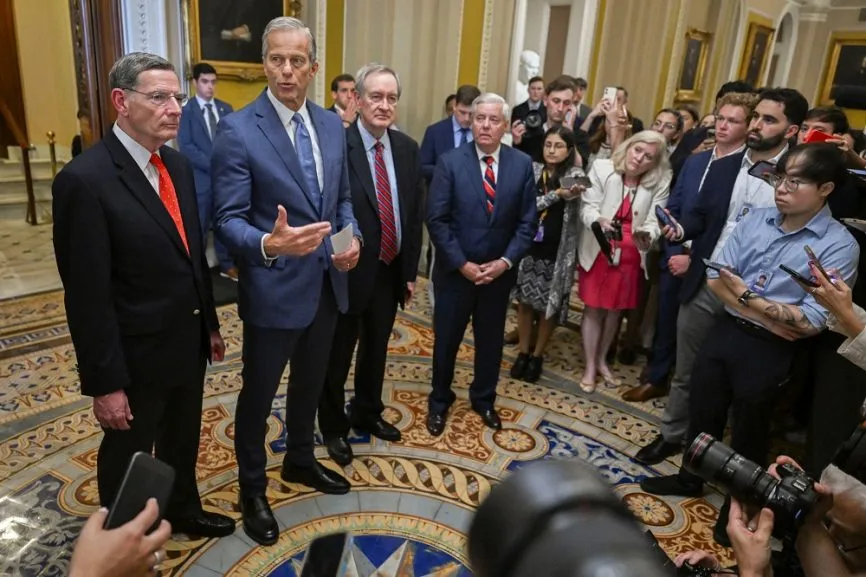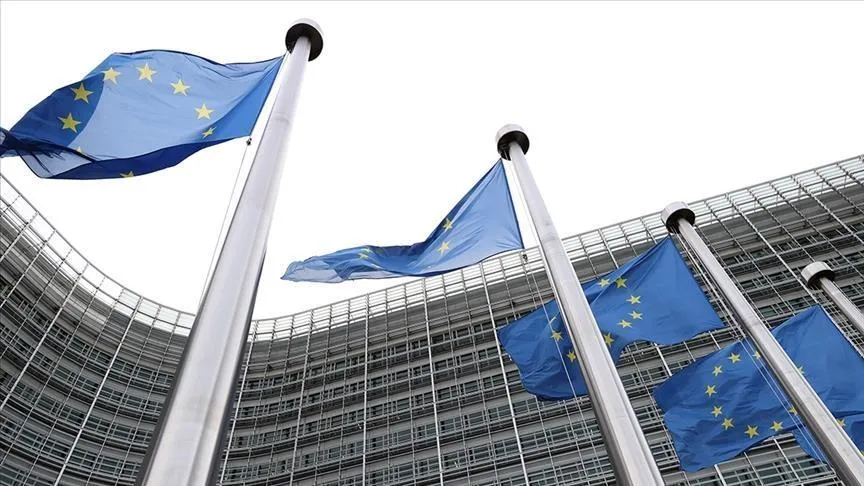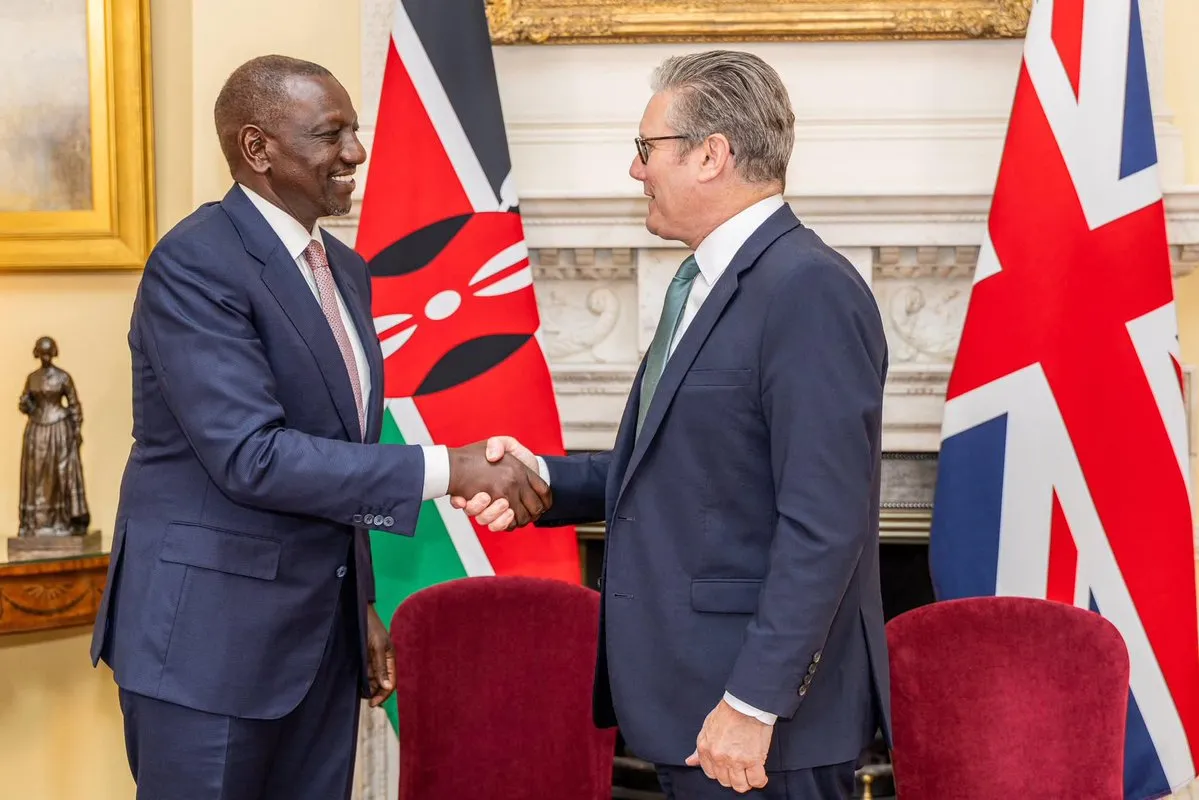Namibia and Kenya are positioning themselves to seize regional and continental economic opportunities to bolster economic growth, trade, and regional integration. These efforts were underscored during the Namibia–Kenya political and diplomatic consultations held earlier this week in Windhoek, Namibia. The consultations culminated in a joint communiqué highlighting the nations’ commitment to deepening their bilateral relations with a primary focus on enhancing economic cooperation and fostering increased political engagement.
The diplomatic talks were chaired by Namibia’s Minister of International Relations and Cooperation, Dr. Peya Mushelenga, and Kenya’s Prime Cabinet Secretary and Cabinet Secretary for Foreign and Diaspora Affairs, Musalia Mudavadi. The discussions came at a pivotal moment as both countries seek to navigate the current economic landscape, driven by the necessity to harness emerging opportunities in their respective regions and the African continent at large.
Leveraging Regional and Continental Agreements
One of the key outcomes of the discussions was the mutual interest in maximizing the benefits of the Tripartite Free Trade Agreement (TFTA) and the African Continental Free Trade Area (AfCFTA). These agreements, of which both Namibia and Kenya are signatories, are crucial platforms for accelerating the region’s economic integration by reducing trade barriers, enhancing market access, and promoting intra-African trade. AfCFTA, launched in January 2021, is particularly ambitious as it aims to create the largest free trade area in the world, connecting 1.3 billion people across 55 countries.
The AfCFTA provides a framework that allows African countries to diversify their economies, scale up production, and establish global value chains. By leveraging these frameworks, Namibia and Kenya can expand their trade partnerships beyond their current reach, attract foreign direct investment, and strengthen their competitive edge in the global marketplace. Both countries stressed the importance of mobilizing public and private sector stakeholders to take full advantage of these pro-business policies and the continental market that AfCFTA offers.
Key Sectors for Collaboration: Agriculture, Livestock, and the Blue Economy
The discussions between Namibia and Kenya identified key sectors where both nations can collaborate to enhance trade and economic growth. Agriculture and livestock, both vital pillars of the economies of Namibia and Kenya, emerged as primary areas of focus. Namibia’s agricultural sector, primarily centered around cattle ranching, and Kenya’s vibrant horticulture and tea production offer opportunities for synergy. By collaborating in these sectors, both countries can increase agricultural productivity, enhance food security, and tap into the growing demand for agricultural exports in regional and global markets.
Additionally, the blue economy was identified as a critical sector for future cooperation. The blue economy refers to the sustainable use of ocean resources for economic growth, improved livelihoods, and job creation while preserving the health of ocean ecosystems. Namibia’s vast coastline and Kenya’s strategic position along the Indian Ocean offer immense potential for development in fisheries, marine transport, and tourism. The two nations expressed a shared commitment to enhancing investment in maritime resources, which could yield significant economic benefits in the long term.
Strengthening Bilateral Relations and Diplomatic Presence
Namibia and Kenya have enjoyed a strong partnership since establishing formal diplomatic ties in 1964. Over the years, both countries have collaborated on various fronts, from trade to political cooperation. To further strengthen these ties, Namibia announced its intent to open a diplomatic mission in Nairobi in the near future. This move is expected to facilitate smoother trade exchanges, provide support for Namibian nationals living in Kenya, and deepen cooperation in sectors such as health, education, and aviation.
Opening a diplomatic mission in Nairobi would also align with Namibia’s broader strategy of expanding its diplomatic presence across Africa. Nairobi is a key hub for trade and diplomacy in East Africa, housing numerous international organizations, including the United Nations Environment Programme (UNEP) and the United Nations Office at Nairobi (UNON). Establishing a presence in this strategic city would position Namibia to better engage with multilateral bodies and advance its regional interests.
Addressing Global and Regional Issues
Beyond trade and economic cooperation, the Namibia–Kenya consultations also touched on several pressing global issues. Both countries called for the full implementation of United Nations resolutions concerning Western Sahara and the Palestinian question, reaffirming their commitment to upholding international law and advocating for the rights of self-determination for these territories. This stance aligns with the broader African Union (AU) policy, which has historically supported Western Sahara’s claim for independence and called for a peaceful resolution to the Israeli-Palestinian conflict based on international law.
Moreover, the two nations reiterated their call for United Nations Security Council (UNSC) reform. They advocated for a more democratic and representative Security Council that reflects the geopolitical realities of the 21st century and aligns with Africa’s common position as outlined in the Ezulwini Consensus. The Ezulwini Consensus, adopted by the African Union in 2005, calls for two permanent seats with veto power and five non-permanent seats for Africa on the reformed Security Council. The push for UNSC reform remains a priority for many African nations as they seek greater representation in global governance.
Preparing for Key International Events
Both Namibia and Kenya are preparing to host significant international events in the coming months. Namibia will co-facilitate the Summit of the Future alongside Germany at the 79th session of the United Nations General Assembly. The summit, focusing on the “Pact for the Future,” will serve as a platform for expediting global efforts toward sustainable development and addressing critical challenges such as climate change, inequality, and poverty.
On the other hand, Kenya is presenting Raila Odinga, the country’s former Prime Minister, as a contender for the 2025 African Union Commission Chairperson election. Namibia has expressed its support for Odinga’s candidacy, recognizing his long-standing contributions to African unity, peace, and development. The African Union Commission plays a central role in shaping the continent’s political and economic agenda, and Odinga’s leadership could further enhance the organization’s efforts toward regional integration and sustainable development.
Climate Change and Environmental Cooperation
A major outcome of the Namibia–Kenya consultations was the commitment to collaborate on climate change adaptation and resilience. Both nations are increasingly vulnerable to the adverse effects of climate change, particularly the severe drought conditions that have become more frequent across Africa. Namibia, which has one of the driest climates in sub-Saharan Africa, and Kenya, which has experienced devastating droughts in recent years, agreed to work together to develop innovative solutions for climate resilience.
This collaboration could include joint efforts in water management, renewable energy, and agricultural practices that promote sustainability. Both countries also emphasized the importance of multilateral cooperation in addressing climate change and called for greater international support to help African nations adapt to climate impacts.
Moving Forward: Building Bonds of Solidarity and Prosperity
In conclusion, the Namibia–Kenya political and diplomatic consultations have reaffirmed the strong partnership between the two nations. By focusing on trade, economic cooperation, and global governance, Namibia and Kenya are positioning themselves as key players in Africa’s quest for economic growth and regional integration. The emphasis on sectors such as agriculture, livestock, and the blue economy highlights the strategic areas where both countries can collaborate to achieve mutual benefits.
As the continent faces challenges such as climate change, economic uncertainty, and political instability, Namibia and Kenya’s commitment to working together signals a positive step toward building a future of shared prosperity. Through regular diplomatic consultations, robust partnerships, and active participation in regional and global forums, both countries are poised to continue playing a pivotal role in shaping Africa’s economic and political landscape.
Their collaborative efforts in trade, climate change adaptation, and regional integration are expected to yield significant dividends for both nations, reinforcing their positions as leaders in the African continent’s push toward sustainable development and global relevance.
Photo source: Google
By: Montel Kamau
Serrari Financial Analyst
12th September, 2024
Article, Financial and News Disclaimer
The Value of a Financial Advisor
While this article offers valuable insights, it is essential to recognize that personal finance can be highly complex and unique to each individual. A financial advisor provides professional expertise and personalized guidance to help you make well-informed decisions tailored to your specific circumstances and goals.
Beyond offering knowledge, a financial advisor serves as a trusted partner to help you stay disciplined, avoid common pitfalls, and remain focused on your long-term objectives. Their perspective and experience can complement your own efforts, enhancing your financial well-being and ensuring a more confident approach to managing your finances.
Disclaimer: This article is for informational purposes only and does not constitute financial advice. Readers are encouraged to consult a licensed financial advisor to obtain guidance specific to their financial situation.
Article and News Disclaimer
The information provided on www.serrarigroup.com is for general informational purposes only. While we strive to keep the information up to date and accurate, we make no representations or warranties of any kind, express or implied, about the completeness, accuracy, reliability, suitability, or availability with respect to the website or the information, products, services, or related graphics contained on the website for any purpose. Any reliance you place on such information is therefore strictly at your own risk.
www.serrarigroup.com is not responsible for any errors or omissions, or for the results obtained from the use of this information. All information on the website is provided on an as-is basis, with no guarantee of completeness, accuracy, timeliness, or of the results obtained from the use of this information, and without warranty of any kind, express or implied, including but not limited to warranties of performance, merchantability, and fitness for a particular purpose.
In no event will www.serrarigroup.com be liable to you or anyone else for any decision made or action taken in reliance on the information provided on the website or for any consequential, special, or similar damages, even if advised of the possibility of such damages.
The articles, news, and information presented on www.serrarigroup.com reflect the opinions of the respective authors and contributors and do not necessarily represent the views of the website or its management. Any views or opinions expressed are solely those of the individual authors and do not represent the website's views or opinions as a whole.
The content on www.serrarigroup.com may include links to external websites, which are provided for convenience and informational purposes only. We have no control over the nature, content, and availability of those sites. The inclusion of any links does not necessarily imply a recommendation or endorsement of the views expressed within them.
Every effort is made to keep the website up and running smoothly. However, www.serrarigroup.com takes no responsibility for, and will not be liable for, the website being temporarily unavailable due to technical issues beyond our control.
Please note that laws, regulations, and information can change rapidly, and we advise you to conduct further research and seek professional advice when necessary.
By using www.serrarigroup.com, you agree to this disclaimer and its terms. If you do not agree with this disclaimer, please do not use the website.
www.serrarigroup.com, reserves the right to update, modify, or remove any part of this disclaimer without prior notice. It is your responsibility to review this disclaimer periodically for changes.
Serrari Group 2025





